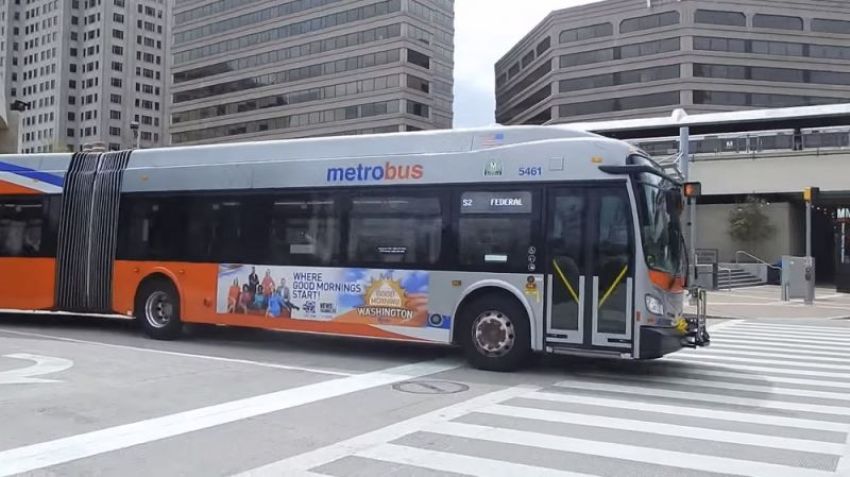DC Metro violated Christian group's free speech rights by rejecting ads: court

The Washington Metropolitan Area Transit Authority wrongfully rejected two advertisements from a Texas-based conservative Christian organization, a federal court ruled.
U.S. District Court Judge Beryl A. Howell issued a memorandum opinion Tuesday in the case of WallBuilder Presentations v. Randy Clarke, partially granting an injunction against WMATA's ban on the advertisements.
At issue is WMATA's decision to reject two ads from Wallbuilders that violated the transit authority's ban on ads that "influence members of the public regarding an issue on which there are varying opinions" and "that promote or oppose any religion, religious practice or belief."
Howell concluded that the guidelines WMATA used to prohibit the Wallbuilders ads were too broad and selectively enforced, as ads promoting the controversial Plan B pill and advocacy for lower hospital pricing.
"To be clear, WMATA is permitted to retain considerable discretion in evaluating the intent and purpose of an ad … but this discretion must be coupled with objective, workable standards," wrote Howell.
Wallbuilders is represented by the conservative legal group First Liberty Institute, the progressive legal nonprofit the American Civil Liberties Union, the ACLU of D.C. and Steptoe, LLP.
"We are pleased that this ruling moves us one step closer to ending WMATA's arbitrary censorship of speech about public issues," said Arthur Spitzer, senior counsel at the ACLU-D.C., in a statement on Tuesday.
"In a democracy, the government has no right to pick and choose which viewpoints are acceptable. This case is about expanding everyone's freedom to express their views without unreasonable government interference."
FLI Senior Counsel Jeremy Dys said the U.S. Constitution "grants all Americans the right to express their point of view, religious or secular."
"Rejecting a faith-based advertising banner by labeling it an 'issue ad,' while accepting other ads such as those promoting a 'Social Justice School' and 'Earth Day' is clearly hypocritical, discriminatory, and illegal," Dys continued.
"We are grateful that the court recognized that WMATA unconstitutionally rejected WallBuilders ads and look forward to continuing to fight for complete victory."
In 2015, WMATA changed its policies regulating advertisements on Metro trains and buses to prohibit religious, political or other controversial issues-based messages.
The decision came partly in response to negative feedback from passengers and efforts of a group to run an ad negatively depicting Islam religion founder Muhammad.
Last December, Wallbuilders filed a complaint against Clarke, WMATA's general manager and chief executive officer, over the rejection of the advertisement.
According to the complaint, Wallbuilders submitted two ads for consideration. One ad featured a painting of George Washington praying, and the other showed a painting of the signing of the Constitution. Both images included the statement, "Christian? To find out about the faith of our founders, go to wallbuilders.com."
After WMATA rejected these ads, Wallbuilders resubmitted them, having reduced the caption to just "visit wallbuilders.com." Even with the changes, WMATA once again rejected the ads.
WMATA was sued by the Catholic Archdiocese of Washington D.C. in November 2017 when the transit organization refused to run a Christmas advertisement.
In December of that year, U.S. District Judge Amy Berman Jackson ruled against the archdiocese, and a three-judge panel of the U.S. Court of Appeals for the District of Columbia upheld the ruling.
"The Archdiocese has not shown, however, that WMATA is impermissibly suppressing its viewpoint on an otherwise permitted subject, and its claim of discriminatory treatment is based on hypothesis," argued the circuit panel.
"Were the Archdiocese to prevail, WMATA (and other transit systems) would have to accept all types of advertisements to maintain viewpoint neutrality, including ads criticizing and disparaging religion and religious tenets or practices."



























